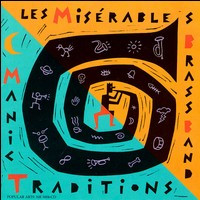
Les Misérables Brass Band
Manic Traditions
Album 1990 on Northeastern Records label
(Brass Band)
Liner Notes: The brass band music on this disc comes from the festivals and parties of the world. We've culled songs from exotic and far-away places—from Macedonia to Motown—keeping faithful to traditional sounds while infusing our own manic style. Playing brass music from around the world is like developing a new way of speaking: an always-evolving international language. We're redefining our native tongue. We pick up songs any way we can: from a friend who holds up a tape recorder at a passing South American parade, from an old Pakistani man in the crowd at a concert in Canada, or from a scratchy original recording of early black gospel. Our diversity has led us to perform at festivals of world music, folk music, new music, jazz, and comedy; whether we're heard in a bar in Quebec, in the streets of New York City, in a Barcelona concert hall, or on your stereo, it gives us great pleasure to share it with you. A bit of each song's history: Trumpeter Frank London captures the upbeat sounds of the Caribbean in the original composition called "T.T." Frank didn't have to go all the way to the West Indies to capture the sounds of calypso and soca music (although he would have liked to). All he had to do was open his window. Frank lives in Brooklyn, New York, where soca is the preferred dance music of the Caribbean neighborhoods. "Jhanibar di Panwan Chankar" is a Pakistani tune that came to us from a fellow world music band, Three Mustaphas Three. In Indo-Pakistani culture, brass bands are used for weddings, parades, and festivals, including one wild celebration where people throw colors—even paint—at each other in the street. Although "Ramo Ramo" is a traditional Serbian cocek, it enjoys contemporary popularity on three continents and is the featured song on the sound track of the film "Montenegro." (A note about the unity of world music: even though these first three songs come from cultures as diverse as West Indian, East Indian, and Eastern European, they all have a similar beat pattern of [dotted quarter note, dotted quarter note, quarter note] which also figures heavily in Puerto Rican salsa and Jewish klezmer music.) Cheap detective novels inspired our trombone player David Harris to write "Encounter on a Foggy Night," a 1930s-style send-up of rainy nights, smoky rooms, women who know too much, and the men who think they have to save them. Pull out the tequila, salt, and limes for "El Abandonado," a saucy Mexican waltz with a distinctly jubilant sound that makes you want to drink and dance 'til you drop. The mere mention of the tune garnered French horn player Marshall Sealy a free drink at a Guadalajara bar. We transcribed "Three Bolivian Marches" from a tape recording made in South America, where our friends Claudia and Jared Snyder captured the sounds of parades and Carnaval. "Precious Lord, Hold My Hand" is one of those exciting tunes that shows us a culture in transition. We learned this old gospel tune from an original recording of a turn-of-the century Afro-American brass band. The musicians—perhaps born into slavery—blend the era's pre-dixieland style with Southern hymn music and a recollection of traditional African horn music. Before rap music there was the funked up "go-go" sounds of Chuck Brown and the Soul Searchers. David Harris caught their act while touring Washington D.C., and captures their soulful sound in his arrangement of Earle Hagen's "Harlem Nocturne." The Alternative Museum in Manhattan annually hosts a "Dia de los Muertos (Day of the Dead) festival, and for the second consecutive year we've led hundreds of eerily-costumed people to the bittersweet strains of "El Dios Nunca Muerte," "God Never Dies." The festival is a traditional day of remembrance in Mexico, celebrated with masks, skeleton costumes, and grave-side parties. In tuba player Marcus Rojas's arrangement of "Manic Depression," we pay special tribute to Jimi Hendrix, and try to invoke the spirit of a man whose music became part of a movement that changed history. The sounds on this track are all acoustic, produced by brass and percussion instruments. "King Street Tango" was written by our good friend and band alumna Miriam Rabson. In contrast to tango's Argentinian whorehouse roots, the song's name comes from a quiet little street in Oberlin, Ohio, where Miriam's parents live. We first heard "Nyoro" on an African music collection, performed on natural trumpets made of wood or animal horns. We couldn't resist. People keep stealing "Phoenix City." Roland Alphonso, drummer for the Jamaican ska band the Skatelites, first heard the melody in the background music of one of the countless Westerns he loves to watch. We don't know whether the tune itself was called "Phoenix City" or whether it was played during a scene that took place in that town. Whatever the case, Roland stole it and created the now-famous ska version. Now it's the Misérables' turn. —Les Misérables Brass Band
Musicians
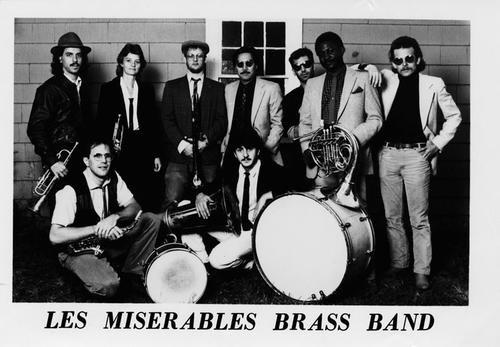 | Les Misérables Brass Band , US arranged by, producer, album by |
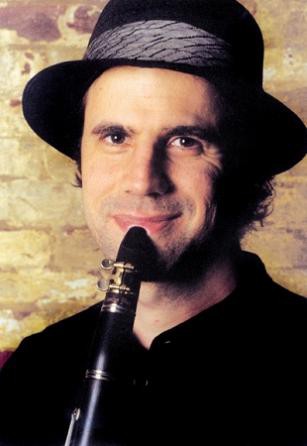 | Matt Darriau cl, *1966 US alto saxophone, clarinet, soloist |
 | David Harris tb, US arranged by, producer, trombone, vocals, written by |
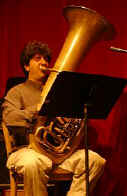 | Marcus Rojas tu, *1963 US arranged by, soloist, tuba |
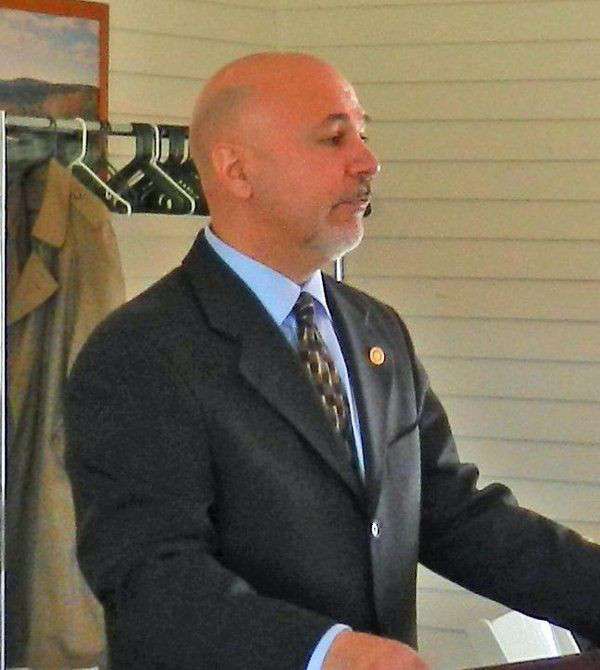 | John Arrucci dr, drums, percussion |
 | Takaaki Masuko , US drums, percussion |
 | Marshall Sealy frh, french horn, soloist |
 | Dave Harris org, soloist |
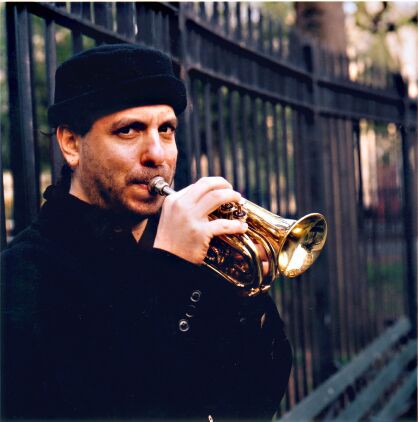 | Frank London tr, *1958 US soloist, trumpet, written by |
 | Jeanne Snodgrass tr, US soloist, trumpet |
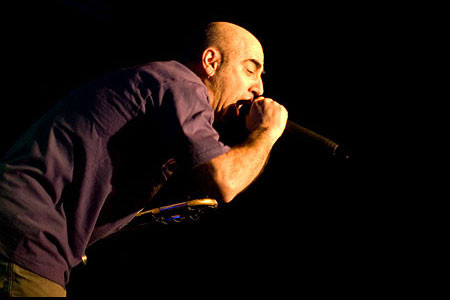 | Vinnie Nobile tb, voc, US soloist, trombone, vocals |
Producers
| Michael Bartolos cover, art |
| Tom Menihan design, album design |
| Jordon D'Alessio engineer, mixed by |
| Tom Mitchell engineer |
| Toby Mountain mastered by |
| Susan Calkins other, production manager |
Album Tracks
| No | Title | Artist | Composer | Duration |
|---|---|---|---|---|
| 1 | T.T. | Les Misérables Brass Band | 4:03 | |
| 2 | Jhanibar Di Panawan Chankar | Les Misérables Brass Band | 4:01 | |
| 3 | Ramo Ramo | Les Misérables Brass Band | 4:39 | |
| 4 | Encounter On A Foggy Night | Les Misérables Brass Band | 4:30 | |
| 5 | El Abandonado | Les Misérables Brass Band | 3:07 | |
| 6 | Three Bolivian Marches | Les Misérables Brass Band | 5:38 | |
| 7 | Precious Lord, Hold My Hand | Les Misérables Brass Band | 2:40 | |
| 8 | Harlem Nocturne | Les Misérables Brass Band | 5:43 | |
| 9 | El Dios Nunca Muerte | Les Misérables Brass Band | 5:06 | |
| 10 | Manic Depression | Les Misérables Brass Band | 5:06 | |
| 11 | King Street Tango | Les Misérables Brass Band | 4:54 | |
| 12 | Nyoro | Les Misérables Brass Band | 3:28 | |
| 13 | Phoenix City | Les Misérables Brass Band | 3:28 |
ArtistInfo App
ArtistInfo for iOS and ArtistInfo for Mac are presenting musicians, composers and producers that are envolved in the musical work that you are listening to in Apple Music, iTunes, or Spotify. Discover new music via the network among artists. Manage your favorite musicians and albums via iCloud and share recommendations with your friends via email, AirDrop, or Social Media.Acknowledgements
To all the music fans that are contributing on Discogs, MusicBrainz and Wikipedia. Thanks to Franz Flückiger for providing Storygram used to visualize band membership.Other Search Results
| Les Misérables Brass Band - Manic Traditions US 1994 Jazz, Rock and Latin |